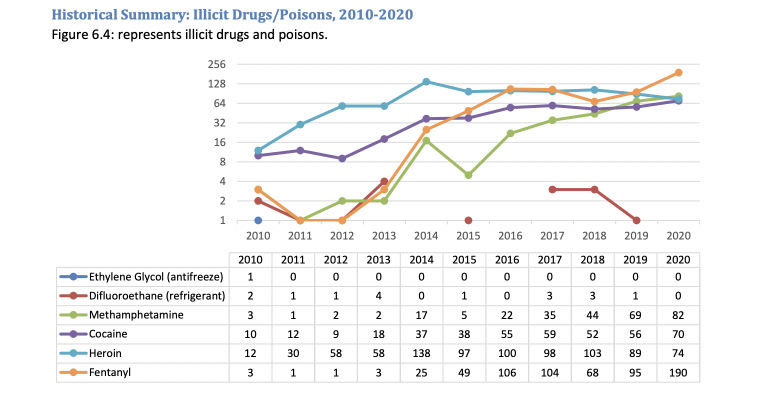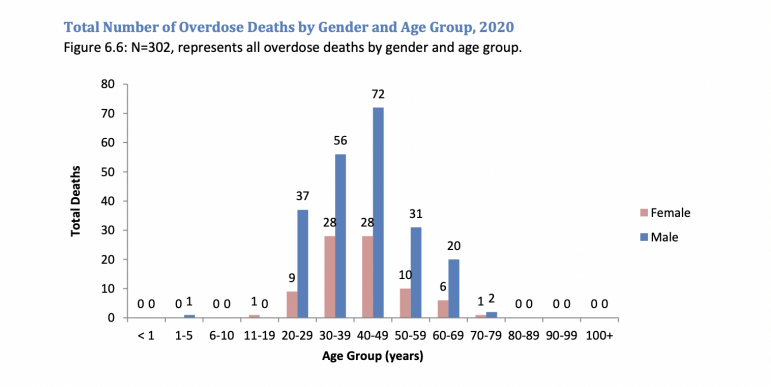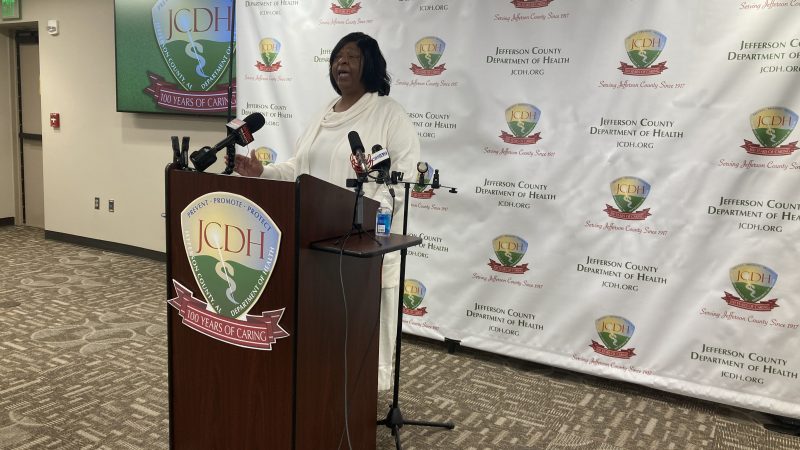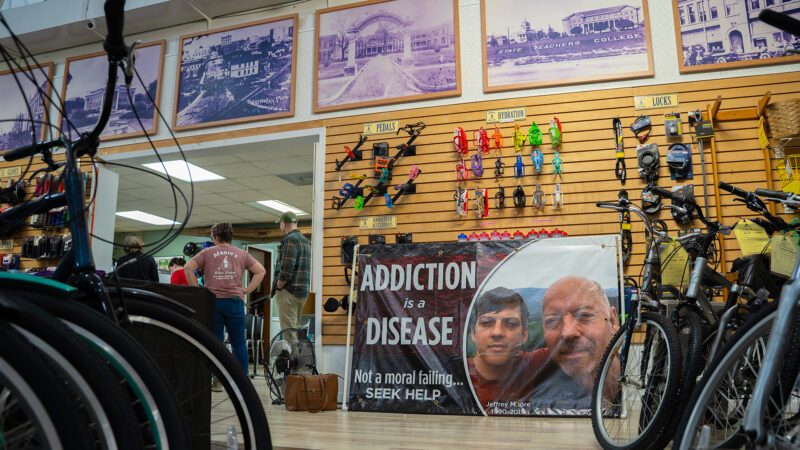Fentanyl Overdose Deaths Increase 100% In Jefferson County
Pam Butler, coordinator of recovery resources with Alabama Department of Mental Health, talks about the increase in overdose deaths during a press conference on Tuesday.
Local health officials are raising the alarm about a record-breaking surge in fentanyl overdose deaths. In 2020, the number of deaths due to the synthetic opioid increased by 100 percent, and the rate continues to increase.
“At this point, we’re on pace to crush last year’s records,” Jefferson Chief Deputy Coroner Bill Yates said during a press conference Tuesday.

Graph from the Jefferson County Coroner’s Office shows the annual number of overdose deaths due to the most common illicit drugs from 2010-2020.
Fentanyl is many times more powerful than the natural opioid heroin, and officials said more people are being exposed to the substance without realizing it.
“What we’re seeing is a new trend,” said Jefferson County Health Officer Dr. Mark Wilson, “And that is fentanyl popping up in the supply of other drugs, including cocaine, crack cocaine and methamphetamine, resulting in deaths in a whole new population.”
Data from the 2020 county coroner’s report shows a shift in the demographics of overdose deaths, with an increase among Black males and all males in the 40-49 age group. A majority of overdose deaths are among white men.

Graph from the Jefferson County Coroner’s Office shows the gender and age distribution of overdose deaths in 2020.
Health officials warn that drug use is never safe, but those who use illicit drugs should test a small sample of a substance before consuming it, and should never use drugs alone.
The medication Naloxone, which can help reverse an opioid overdose, is available for free from the Jefferson County Department of Health. The department offers in-person and online training on how to administer the medication.
“If somebody dies of an overdose, we can’t help them,” Wilson said. “But if we can give them Naloxone, know how to give rescue breathing, know how to call 9-1-1, get help, those people can then have a chance to get into treatment and long-term recovery.”
To connect with a peer support specialist for more information about substance use disorder resources and treatment in Alabama, you can call a 24/7 helpline at 1-844-307-1760. This service is operated by The Recovery Organization of Support Specialists (ROSS) and funded by the Alabama Department of Mental Health.
You can also text “NAMI” to 741741 or call SAMHSA’s Disaster Distress Helpline, 1-800-985-5990, 24/7, which provides immediate crisis counseling for people who are experiencing emotional distress.
Carney says he backs strikes on Iran ‘with some regret’ as world order frays
Canadian Prime Minister Mark Carney says he supports the strikes on Iran "with some regret" as they represent an extreme example of a rupturing world order.
Iranian civilians are now fleeing the relentless bombing for neighboring Turkey
As the U.S. military broadens its strikes in Iran, traumatized Iranians are reaching the border with Turkey.
A split Senate votes against measure to constrain Trump’s authorities in Iran
Democrats in the Senate were facing an uphill climb Wednesday in their push to restrain President Trump's ability to wage war against Iran.
WATCH: How traffic dried up in the Strait of Hormuz since the Iran war began
The effective closure of the Strait of Hormuz is "about as wrong as things could go" for global oil markets. Iran achieved it not with a naval blockade, but with cheap drones.
As Mississippi waits to spend opioid settlement funds, children and families suffer
Mississippi will receive more than $400M to fight the opioid epidemic. So far, officials haven't directed it toward programs that support addiction recovery.
Alabama’s new state climatologist takes the reins
The controversial John Christy is retiring as Alabama’s state climatologist. Lee Ellenburg now assumes the role and is already making a few changes, including declaring that climate change is real and caused by humans.






